- Author Adrian Jeff jeff@psychologosportal.com.
- Public 2023-12-17 05:06.
- Last modified 2025-06-01 06:54.
A case from medical practice. Progressive myopia in a child
There are no works that demonstrate clear criteria for excessive visual stress and its reliable connection with the onset of progressive myopia. Never before and no one seriously considered the possible relationship of psychological aspects with the onset and progression of myopia in children.
Progressive myopia, or myopia, is most common and progresses intensively in children during school years. It is generally accepted that the main reason is excessive visual stress (reading, computer). The pathogenesis, the nature of the morphological changes that occur in the visual apparatus in this disease have been studied in detail. The questions remain unanswered: why, in general, with the same load, some children develop myopia, while others do not, in some it undergoes correction or even regression - in others it progresses year after year.

The real causes of this severe disorder in academic medicine are still unknown. There are no works that demonstrate clear criteria for excessive visual stress and its reliable connection with the onset of progressive myopia. Never before and no one seriously considered the possible relationship of psychological aspects with the onset and progression of myopia in children.
Today, a new level of understanding of the mental characteristics of a person makes it possible not only to understand the cause of the onset and unsatisfactory results of myopia treatment, but also makes it possible to positively influence the further prognosis of the disease.
A mother and her 14-year-old daughter applied for a routine examination and consultation. Among the complaints - fatigue, vulnerability, fear of being alone. According to the mother, the girl grew and developed normally, according to her age. A family of three, living with their own father for 15 years. The child is observed by an ophthalmologist from the age of 6, suffers from progressive myopia (OD = -6.0; OS = -6.5). At the moment, there is a question about scleroplasty (surgical treatment of myopia, see below). In this regard, a neurologist's examination is recommended to exclude contraindications from the nervous system.
Objectively: the girl is of the correct physique, communicative, answers questions in detail, the emotional reaction is preserved, adequate. Wear glasses. On the part of the nervous system, no clinically significant focal symptoms were revealed.
- Tell, please, about yourself, do you like everything in your life, maybe there is something that you would like, what is missing? How is school? How are friends, girlfriends?
- Everything is fine, I have only two fours, the other fives. There are girlfriends …
- Are mom and dad strict?
- No, - the girl answers with a smile, - Dad, however, leaves often, he works a lot. Earlier for a week or two, recently for a month or more … Well, probably, I would like him to be with me more, to play. Other girls with dads walk and walk, and mine is always busy, with us almost never goes anywhere, is silent.
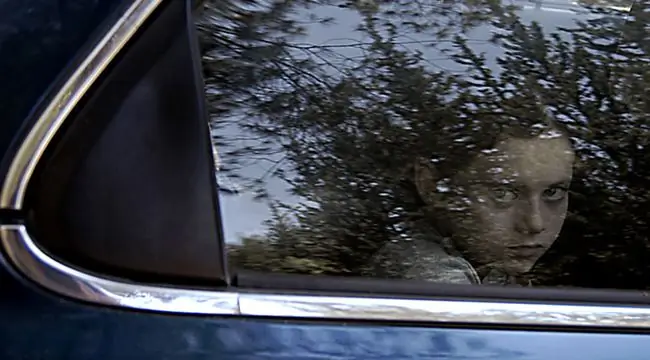
From a conversation with the mother without the presence of the child:
- Tell us about the girl. So I understand, with the exception of a sharp decrease in vision, is her health all right?
“Yes, everything is fine, but it worries me that there is nothing we can do to heal her eyes. Where we just took her. Almost completely banned her computer. It all started at school. Well, much further, -6.5 already! At first we were told that it was a spasm of accommodation. We dripped different drops, did everything we were prescribed, but either some insignificant effect, or no result at all. So many doctors have already reviewed us. Now they say that scleroplasty should be done, and I'm afraid that this operation will also have no effect, or maybe it will harm it? I can't make up my mind in any way.
For reference:
Scleroplasty is a method of sclero-strengthening treatment of myopia in children with an increased risk of myopia progression. As a treatment, simultaneous repeated sclero-strengthening interventions are carried out. At the first stage, scleroplasty is performed simultaneously by cutting out the graft from the outer half of the donor eye from the lower limbus through the inner edge of the lower rectus muscle with cutting off the cornea in one eye and sclero-strengthening injection in the paired one.
A year later, the second stage of treatment is carried out: repeated sclero-strengthening interventions in both eyes. The main goal of sclero-strengthening effects in progressive myopia is to stabilize refraction. As a result, stabilization of myopia during the first year after scleroplasty is observed in 96% of operated eyes and in 66% of paired eyes. At the same time, in the late postoperative period, repeated progression of myopia in children and adolescents was noted in almost 70% of cases (VS Belyaev, VV, etc. Modern methods of surgical prevention of progressive myopia. In the book: Myopia. Pathogenesis, prevention of progression and complications: Materials of the international symposium. M., 1990, pp. 127-129).
It is known that over time, the allo tissue implanted during scleroplasty undergoes disorganization, resorption and is replaced by the newly formed connective tissue of the recipient. An increase in the thickness and density of the sclera remains practically the only result of long-term scleroplasty. However, this effect also weakens over time (EP Tarutta. Choice of the method of scleroplasty for progressive myopia in children // Bulletin of Ophthalmol., 1992, 2, pp. 10-13).
- Please tell us how it all started, when and under what circumstances did the child begin to lose sight? Maybe remember what events happened then, it doesn't matter, maybe, in your opinion, they were not related to her vision.
- We went to school at the age of six and a half. The doctors associate it with this, they began to study … Then she played on the computer, but I won't say that too much … I don't remember anything special.
- Do you three live? Do you keep any pets?
“We don’t have any animals … Yes, three of us, well, then we were not a little three,” the mother added, hesitating, “Dad was leaving us.
- I.e? He was leaving on watch, did you say?
- Well no. I packed my things and went to another woman, - the woman explained a little embarrassedly, with a tremor in her voice.

- When it was?
- Just when my daughter went to school, I remember, everything piled up at once … He left suddenly, somewhere he found himself another on a business trip, packed his things and left, first to his mother … And then just in the first grade at my daughter's vision began to deteriorate, I began to take her to the doctors. Everything coincided that year, it was very difficult.
It was noticeable how difficult it was for a woman to remember.
- Well, he returned? You live together now, do I understand correctly?
- Yes, now together, he is back, - she nodded, - the three of us live, but he still spends little time with us, all in his work. One work in the head. Will come and leave again for a long time. Maybe there he still has someone somewhere, how can I know … He pays almost no attention to his daughter.
- Yes, she told me about this when you were not in the office.
After a pause:
- As for progressive myopia in a child from 6 years of age, its causes are generally clear. Unfortunately, none of the doctors was able to tell you about this before, but this is not their fault. We are just beginning to reveal the direct connections between the mental sphere and the physiology of the functioning of various organs of the body. For you now, some of the findings may seem far from obvious, but nevertheless they underlie the progressive loss of vision, specifically in your daughter and in many other children with the same problems.
Not for all, but for a certain percentage of children, we define what is called the visual vector in Yuri Burlan's Systemic Vector Psychology. This is not just a collection of certain characteristics and traits of character, it is a set of certain properties and needs in the mental, which require filling and implementation in the process of development from birth and as they grow up until old age.
The physiology of our body is arranged in such a way that a shortage, an underutilization at the mental level, triggers the processes by which the body tries to adapt, get rid of, or at least compensate for the suffering arising from these voids.
Your girl is looking for a close and deep emotional connection, contact, attention. She desperately needs to feel love and care from the two people closest to her. She is endowed with the ability, wants, and can form a strong emotional bond with literally anyone or anything. This is one of a number of properties that we observe in the visual vector. Figuratively speaking, the visual analyzer for such children is one of the main channels through which they receive the most important flow of all the necessary "food" for themselves. And he is also the most vulnerable and sensitive in certain cases.
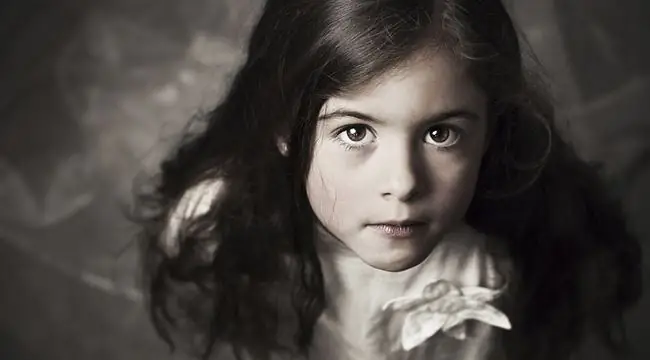
- She very often asks me: "Mom, do you love me?" - remembered the mother.
- Of course, how do you want? She needs to at least verbally receive confirmation of what she does not feel on her emotional level. By the way, this does not mean that for other children, emotional connection with parents and not only with them does not matter. Not at all, but this is a little about something else. Children with a visual vector, especially in early childhood, will be completely dependent on it. Moreover, the development of the given mental properties of the visual child depends on the presence of a strong emotional connection with the parents, especially with the mother. For example, the presence of obvious fears or tantrums in children indicates the lack of this connection.
Emotional involvement and attachment to something or someone is always very pronounced and significant - it is important that parents understand this. If in another child who has not been endowed with a visual vector from birth, the loss of, for example, a pet does not cause a particularly colored reaction, then for a child with a visual vector this can serve as sufficient stress to manifest itself not only at the mental level, but also at the level associated with organ vector.
In the latter case, accommodation spasm, contraction of the ciliary muscle, and a decrease in diameter with an increase in the optical power of the lens is a kind of compensation attempt.
In some cases, this process can be reversible. Doctors know this, although they do not understand and do not distinguish between the true causes. But sometimes a combination of external and internal factors creates very serious obstacles, and we become witnesses of almost irreversible changes.
- Do you mean that dad left us? Was that the reason?
- The break in the emotional connection with the father, obviously, served as an impetus for the girl's vision decline. I am far from an illusion that in a short time of consultation, we will be able to sort out all the psychological experiences of your daughter to the ground, but it is important and necessary to do this. To understand your child, the peculiarities of her mental, innate properties and desires that require fulfillment and development, you must at least get a complete picture in all details, which is possible only at full-fledged lectures by Yuri Burlan.
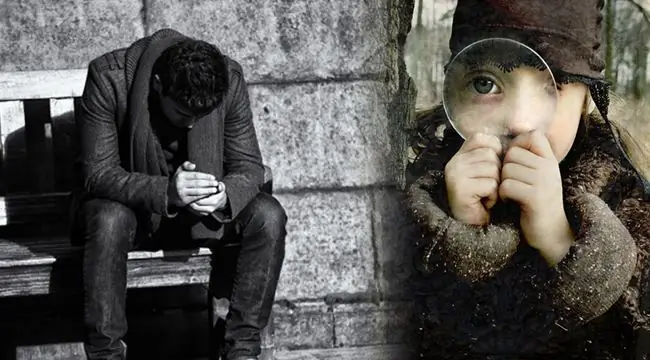
After all, the girl is only 14 years old, she still has everything ahead, understanding her deeper, you can fix a lot. For some reason, we attach great importance, for example, to the diet, vitamins and all other useful microelements to provide all the necessary for our physical body, but we do not know at all and we ignore the needs of the psyche, which are hierarchically much higher and have much more importance. We are confused, believing that the needs of our psyche are about the same for everyone, as well as the needs for proteins, fats and carbohydrates. This is far from the case.
- But what if it so happened that our father left us? It didn't depend on us. I cannot force him to treat differently … And with regard to this operation, do you think, agree or not? The question does not cost money, I need a result, what can I do?
- You can do a lot. Firstly, although so many years have passed, we have a chance to stop the progression of myopia and, quite possibly, reverse the process. Secondly, with regard to surgical treatment, according to statistics, in the first year after the operation, we get a result, while, according to the same statistics, more than half of these operated children in a year or two have resorption of allot tissue, and everything returns to the original state. Since these operations for children and adolescents were proposed only some 15-20 years ago, doctors have no data on what will happen in such patients after the age of 40 or 50 years. If you are asking my disinterested opinion of whether or not to agree to the operation, then, in view of all the above, most likely not. Thirdly,as the only possible alternative for you and your daughter, I strongly recommend getting knowledge at the training "System-vector psychology" by Yuri Burlan. There are a number of very important details that cannot be disclosed in a consultation format. My private recommendations on how to help a girl will not have the strength and persuasiveness for you that you can get yourself when you have completed 4 lessons of 6 hours each only about the visual vector.
At the lectures of Yuri Burlan "System-Vector Psychology", we are talking about filling specific desires, meeting key needs and getting your share of joy from life through a certain vector or set of vectors in the mental, which a person is endowed with from birth. This is not just an episodic desire, but a vital need that determines the properties of a person, all the details of his physiology at the organ level, forms behavior and, ultimately, a life scenario.
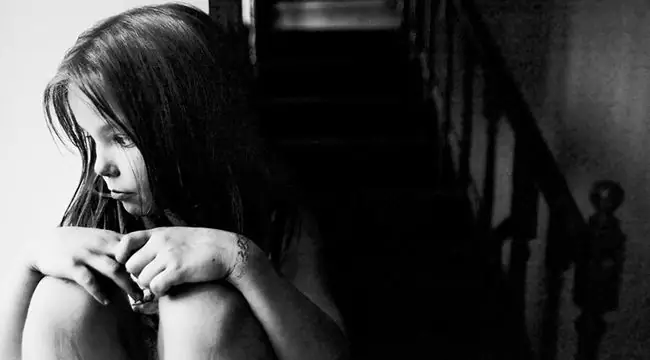
Each vector in system-vector terminology is named and is directly related to its erogenous (hypersensitive) zone, through which information is exchanged and interacts with the outside world. In the system of the natural hierarchy of control and subordination of functions, the mental is located above all systems of neurohumoral regulation and, through a cascade of mediated processes, affects the functioning of both individual mental zones that are identical to a certain sphere, and the entire organism as a whole.
In each vector, we observe our need to fulfill and satisfy our special desires and, along with this, the desire to avoid or reduce the amount of suffering associated with the lack or absence of receiving. The quality and degree of the feeling of joy and satisfaction from the measure of balance between the strength of desires and the completeness of their fulfillment are directly related to the share of development and the degree of maturity in the psychic. At each stage of growing up, we find our necessary conditions for development in each vector. We either recognize them and provide the child from an early age, and then development proceeds most adequately to his nature, or not. In the latter case, the outcome is very dramatic.
It has long been no secret what the body expects in the event of a shortage of food, certain vitamins or trace elements. All diseases associated with a lack of these substances are described in detail. A person generally lives without water for only a few days. Mental needs and methods of filling them have not yet been systematized and described as accurately and in detail, in all details, as Yuri Burlan does in the framework of the training "System-vector psychology".
It is worth noting that mental needs are of a special, individual nature, in contrast to the needs, say, for food or vitamins, which are common to everyone without exception. The presence of a vector or a combination of vectors lives with a person and clearly determines the need to obtain certain benefits that for another person, without the presence of the same vectors, will be completely indifferent.
When the needs are unknown from a very early age, the suffering caused by the inability to fulfill these vital desires is hidden from us. Deficiencies in the mental sometimes lead to irreversible changes and diseases that manifest themselves at the organ level. The latter, when they are already quite obvious, lead us to a doctor.
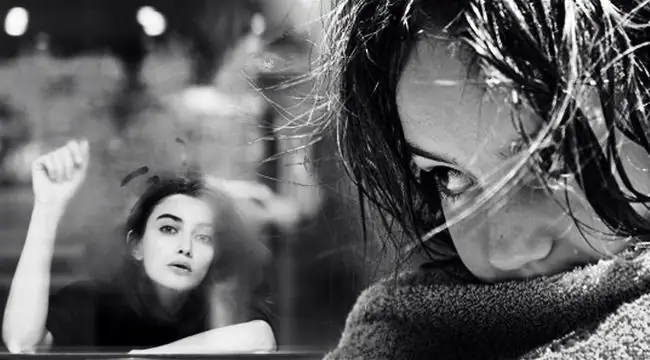
Pay attention to how many children wear glasses. In ophthalmology, there is no effective remedy for childhood myopia. We have made incredible advances in diagnosis, but we are making little progress in treating this disease, because the causes are beyond what researchers are focusing on.
In almost every specific case of a decrease in visual acuity in childhood, we are dealing with a child with a visual vector and we always find a connection between the loss of vision and the rupture of an emotional connection that is significant for the child. This fact unknowingly escapes our attention. After all, we practically do not know how to distinguish the mental characteristics of a child, and a child cannot and should not indicate his shortcomings in words. It is the parents' task to feed, drink and create the most comfortable conditions for the development of his innate potential from the very first days of life. In this case, the balance in the mental will always be reflected in a healthy body.






